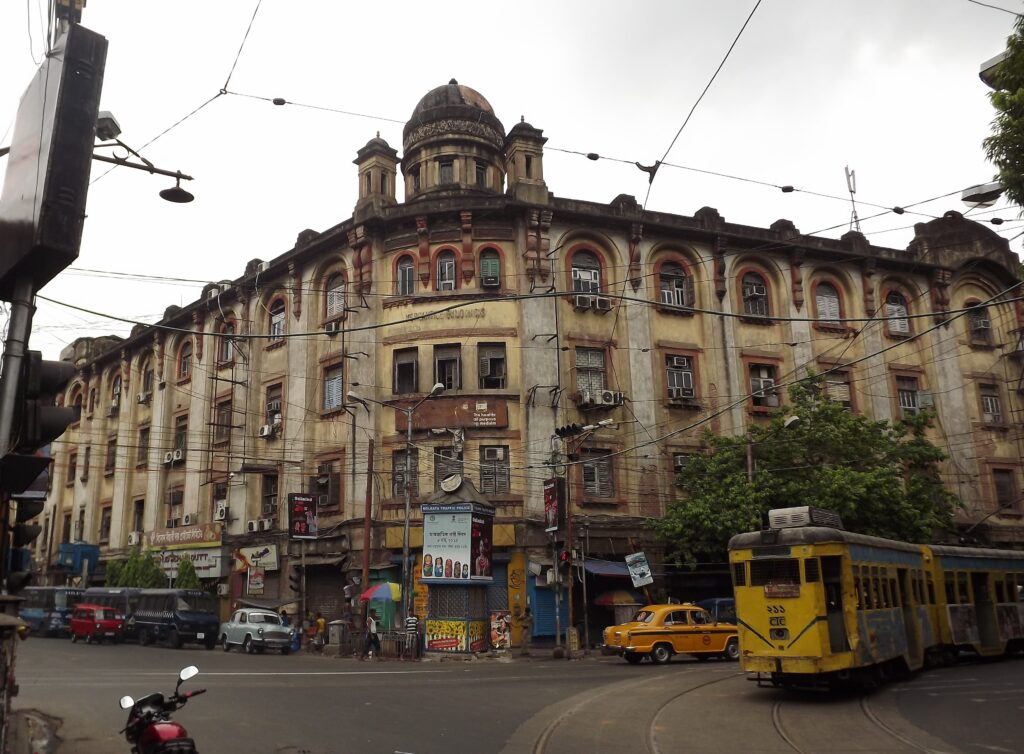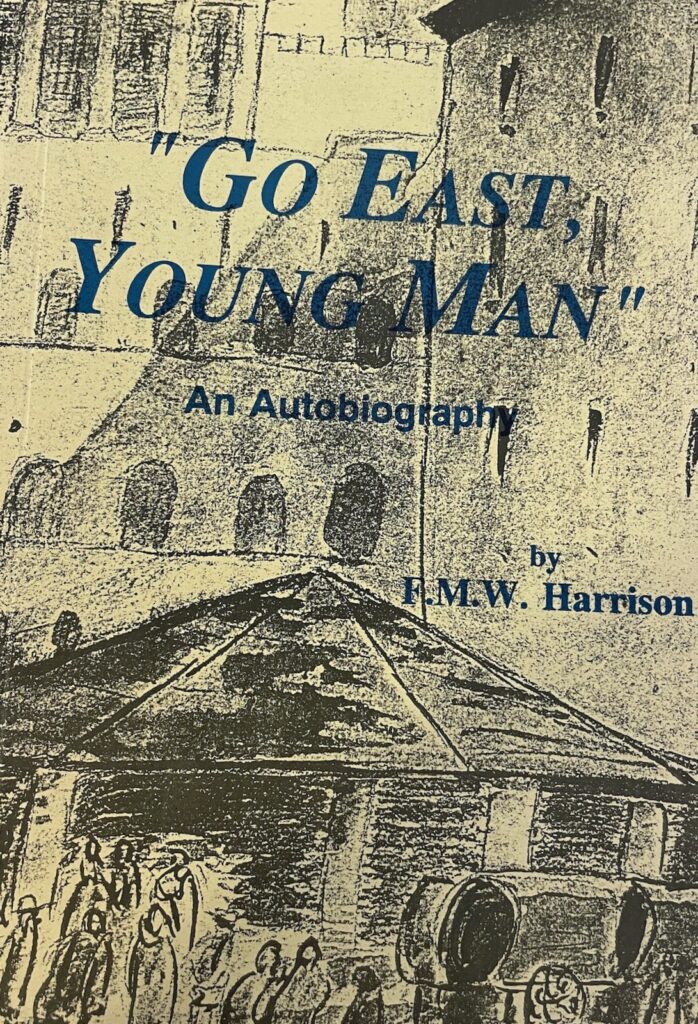
Time to read
Go East Young Man
Frederick Harrison was itching for an adventure when he set sail from Liverpool in February 1941 to join Boots’ export and wholesale business in Calcutta [Kolkata], India. He chronicled his first year with the Kolkata office in his 1993 posthumously published memoir, Go East Young Man.
Frederick Harrison was itching for an adventure when he set sail from Liverpool in February 1941 to join Boots’ export and wholesale business in Calcutta [Kolkata], India. A bachelor pharmacist in his early thirties, he had been working in London throughout the Blitz at Boots’ Stamford Street warehouse.. When he was offered a managerial position with the Indian business, he jumped at the opportunity. Harrison chronicled his first year with the Kolkata office in his 1993 posthumously published memoir, Go East Young Man. The book provides an extremely rare glimpse into Boots operations in India and is laced with vivid descriptions of office life.
Before he embarked on the nine-week voyage to his new posting, Harrison spent time in Nottingham learning about Boots’ export business. He was given a Company allowance to buy supplies for his trip and was issued with a large insurance policy in the event of his death (it was wartime after all). He sailed with colleagues and was supported at each step of his journey by Boots representatives. Upon disembarking at Bombay [Mumbai] in April 1941, Harrison was greeted by Stanley Jarman, Boots’ export manager there. Similarly, after taking a multi-day train journey from Mumbai to Kolkata, colleagues Eric Glenn and Robert Lumley were waiting at the station to show their newest manager the ropes.

Boots’ business in India at the time was treated as an extension of the British-based company. The Indian depots imported Boots products from Nottingham and sold them to wholesalers or direct to retailers. Indian sales staff were employed as agents to visit doctors and pharmacies across the country, selling Boots goods. Individual warehouses set their own prices and did their own advertising.
Harrison, as Kolkata’s wholesale depot manager, was tasked by Nottingham headquarters to bring in enough profit through sales to cover office expenses. Although by no means the only British company selling health and pharmacy goods within British India at this time, Boots had no difficulties finding customers. Almost as soon as stock arrived, it was sold. Given the war, cargo space on ships from the UK was difficult to source and not all shipments made it safely to the warehouse.
Harrison was picked up and dropped off by this car most weekdays. The managers’ day would start at 9.30 in the morning and end at 5.30, with a 90-minute lunch break at 1pm. Most of the Indian staff would arrive at the office at 10.30 having already had their main meal. Harrison mentions developing friendships with Mohan Bhattacharyya, who worked as the assistant manager at the Kolkata depot, and Haridas Das, the senior clerk.
In his leisure time, Harrison maintained a comfortable lifestyle. He hired an Indian personal servant, ‘Charley’, recommended by the office staff, to oversee all domestic duties in his rented accommodation. Charley managed the household chores, including daily laundry, preparing baths, even dressing his employer. He also advised on which food Europeans should avoid to limit stomach upset. A language tutor reported to Harrison’s lodgings three times a week to help him learn Urdu and Hindi. Harrison also travelled around the city on his trusty Raleigh bicycle, another Nottingham export. Colleagues shared advice about how to ‘get on’ in Kolkata. Ex-pats were encouraged to avoid sun at all costs and wear a sun helmet, to join the Saturday Club, to play golf on Sunday afternoons, to wear cotton bands underneath their wristwatch, to wear a jacket when out no matter the temperature, and to always dress for dinner if invited out.
Harrison’s take on British colonial practice in India is decidedly uncritical. Any reflection on racial, religious, and social inequality is largely absent from his memoir. His experiences as a European in Empire, and the privileges this position afforded, are stated in a matter-of-fact way. He writes about his enjoyment of travel, and his fascination with Indian culture. Harrison’s first year in India is just that: a year of firsts. Everything was new and exciting, with opportunity around every corner for a young British professional. Climate, corruption, poverty, and violence were the primary factors Harrison understood to be holding Indians back and, while he did not agree with all aspects of British rule, he believed that it brought efficiency and order.
Central to Harrison’s memoir is his Christian faith and description of his work with the Baptist Church in India. Church life and the relationships fostered through this affiliation lay at the core of his spiritual and social life overseas. It was on a recreational trip to a Baptist mission outside of Kolkata, for example, where he met his future wife, Lily. By the end of 1941, just months after meeting, he and Lily were married.
The Boots Kolkata office quickly lost its newest manager to wartime service. In January 1942, Harrison was commissioned as a lieutenant with the Indian Engineers. He worked at the Government Medical Store Depot in Mumbai, managing medical supply logistics. After the war, following a period of home leave, Harrison returned to the Boots business, residing in Kolkata before moving to Mumbai with his growing family. The Harrisons finally left India for the last time in 1955, returning to life in the UK.

